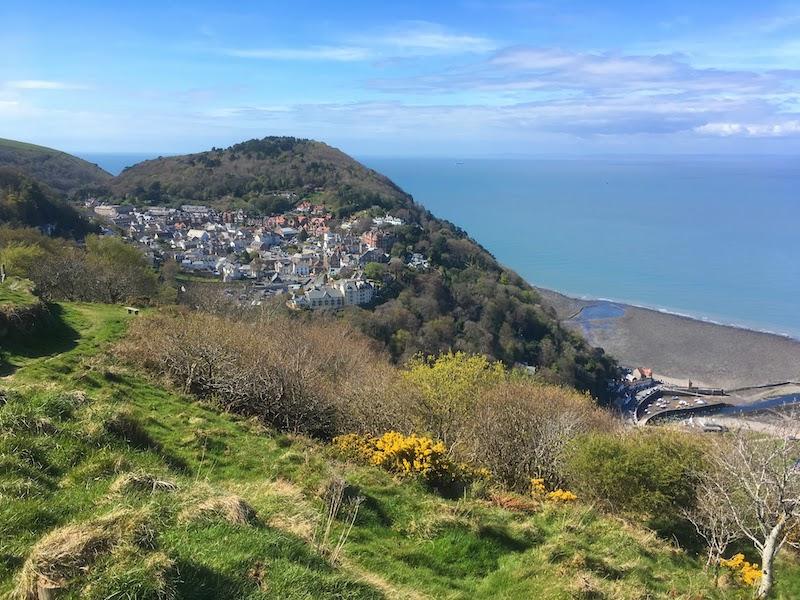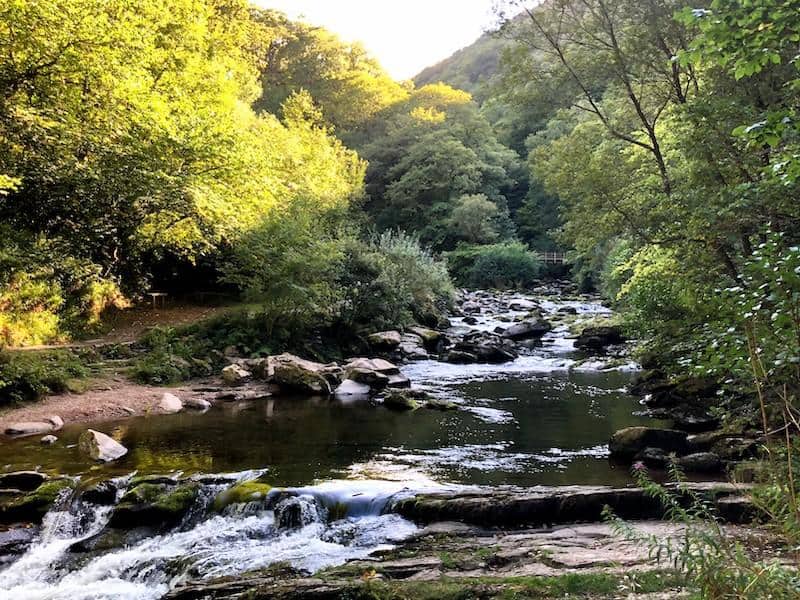Lynton and Lynmouth, situated in Exmoor National Park on the North Devon coastline, with a variety of spectacular scenery and interests, make an excellent base to explore the wonderful choice of coastal and moorland footpaths and bridleways.


No less than four National Walking Trails pass through the twin villages, where you can leave the car behind, to pick up the routes or follow one of the many shorter local walks.
These walks not only give access to the beauty and tranquility of Exmoor’s landscapes, but they bring to life the legend, the great stories and the romance, that unravel the history and intrigues of the area. Many walks retain the same atmosphere of centuries gone by. You can retrace the footsteps of the inhabitants of those times, and feel the magic that has inspired so many visitors, artists and writers.
FAMOUS LOCAL WALKS INCLUDE:
Reached by following the banks of the East Lyn river from Lynmouth, through one of Britain’s deepest wooded gorges. The National Trust tearooms, originally built as a fishing lodge in 1832, provide refreshments in a beautiful glade, on reaching famous Watersmeet. Favoured in Julia Bradbury’s Best British Walks in North Devon. Watersmeet is literally named at the deafening convergence of two magnificent rivers, the East Lyn River and Hoar Oak Water.
The Spectacular Valley of Rocks
Just minutes from from Lynton, is a spectacular part of the South West Coast Path, with wonderful views across the Bristol Channel, and leads to the Valley of Rocks around Hollerday Hill. There are paths that lead up to Hollerday Hill, first to the ruins of Sir George Newnes’ mansion and tennis courts and then on to the summit and the iron-age Hill Fort.

Experience part of one or more of the four famous National Walking Trails that pass through the Lynton & Lynmouth.
Created through history by fishermen, farmers, miners, smugglers, coastguards and soldiers’ – Visit stretches of this magnificent 630 mile South West walk stretching from Minehead to Poole. Join it at Lynton or Lynmouth to enjoy the spectacular coastline towards Porlock or Heddons Mouth and Combe Martin.
The Samaritans Way South West
A journey through the countryside, 100 miles from Bristol to Lynton. From the Brendon Hills, the route heads into the heart of Exmoor, picking up stretches of the river Exe to Exford and then through the famous Doone Valley and Badgworthy Water on to Lynton. The Doone Valley is the legendary setting for the savage deeds of the outlaw Doone family and the infamous highwayman Tom Faggus; and the story of the beautiful hostage Lorna Doone wooed by the heroic local wrestler John Ridd.
The Tarka Trail
Pick up the trail of ‘Tarka the Otter’ from the classic novel by Henry Williamson first published in 1927. A 180 mile epic journey through Dartmoor, Exmoor and North Devon, where some areas have changed little since Williamson’s descriptions of the 1920s. The route picks up the local highlights from the moorlands towards Hillsford Bridge, up onto Lynton’s high cleaves above the gorges of Lynmouth and on to the coastal path.
Linking Southern England’s two National Parks, Exmoor and Dartmoor, in a 182 mile walk finishing at Lynmouth. Climb from Lynmouth to enjoy the views above the Lynmouth gorge and later the unspoilt rural scenery with a remote and tranquil feel difficult to find elsewhere in modern times, on the moorland towards Simonsbath.
Follow in the footsteps of Coleridge’s travels in the South West – The official ‘Coleridge Way’ covers ground from Nether Stowey to Porlock. Closer to Lynton and Lynmouth, walk the stretches that inspired the poems; “The Rime of the Ancient Mariner” and “Kubla Khan”.








